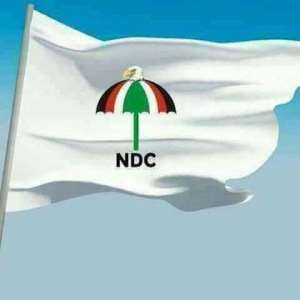
In the ever-churning sea of Ghanaian politics, perception is often reality. And right now, the perception, rightly or wrongly, is being shaped primarily by the minority New Patriotic Party (NPP). And this is where Dr. Prosper Ayisah’s recent observation, shared via WhatsApp, hits the nail squarely on the head.
Dr. Prosper Ayisah’s recent observation regarding the need for a robust publicity strategy for the National Democratic Congress (NDC) under President John Dramani Mahama rings particularly true.
He rightly points to the necessity of proactively disseminating the positive developments initiated by the NDC under the leadership of President John Mahama, especially in light of what he describes as the “straw-clutching, water-muddying strategy” employed by the minority New Patriotic Party (NPP).
Dr. Ayisah’s assessment highlights a critical challenge facing the NDC. While the party may be actively implementing policies and projects aimed at improving the lives of Ghanaians, the impact of these initiatives can be diminished if they are not effectively communicated to the public.
The NPP, through its strategic use of communication, often manages to overshadow the NDC’s achievements by focusing on perceived shortcomings, exaggerating challenges, and disseminating misinformation. This tactic, accurately described as “water-muddying,” creates confusion and doubt in the minds of the electorate, making it harder for the NDC to gain credit for its accomplishments.
A successful publicity strategy for the NDC must be multi-faceted. Firstly, it requires a clear and consistent articulation of the government’s vision and policy goals. The public needs to understand the long-term objectives that are driving the government’s actions and how these objectives will ultimately benefit them. This requires more than just highlighting individual projects; it necessitates painting a cohesive picture of progress.
Secondly, the NDC must be proactive in showcasing the tangible benefits of its policies. Data and statistics, while important, are often difficult for the average citizen to grasp. Instead, the focus should be on illustrating the real-world impact of government initiatives through compelling stories, testimonials, and visual representations.
Showcasing how a new road has improved access to markets for farmers, how a new hospital has saved lives, or how a new educational programme has empowered students, can resonate far more effectively than simply quoting GDP growth figures.
Thirdly, the NDC needs to develop a rapid response mechanism to counter the NPP’s “water-muddying” tactics. This means being prepared to address misinformation and criticism quickly and effectively, using credible sources and clear, concise language.
A defensive posture is not enough; the NDC needs to actively debunk false claims and challenge misleading narratives with evidence-based arguments. Ignoring or dismissing these attacks allows them to fester and gain traction, ultimately eroding public trust.
Furthermore, the NDC must invest in diversifying its communication channels. Relying solely on traditional media outlets is no longer sufficient in today’s digital age.
A robust social media presence and using local information centres including targeted advertising and engaging content in various languages, is essential for reaching both youth and adult demographics and bypassing traditional media gatekeepers. Resourcing party branch and constituency communication officers to disseminate information at their local communities can also be highly effective.
Finally, and perhaps most importantly, the NDC must prioritise transparency and accountability. Openly addressing legitimate concerns and acknowledging mistakes, when they occur, can build trust and credibility. Hiding information or attempting to gloss over shortcomings will only fuel suspicion and reinforce the NPP’s narrative of mismanagement.
In conclusion, Dr. Ayisah’s call for a robust publicity strategy for the NDC is a timely and important one. To effectively counter the NPP’s “straw-clutching, water-muddying” tactics, the NDC must adopt a proactive, multi-faceted communication strategy that focuses on clearly articulating its vision, showcasing the tangible benefits of its policies, responding swiftly to misinformation, diversifying its communication channels, and prioritising transparency and accountability. Only then can the NDC ensure that its accomplishments are recognised and appreciated by the Ghanaian public.
Anthony Obeng Afrane


